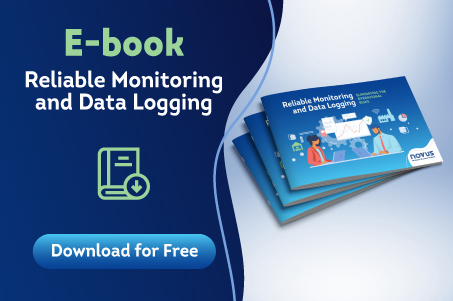The 10 Key Trends in Industrial Automation for 2025
Industrial automation continues to evolve rapidly, and 2025 promises to be a year of significant transformations. The advancement of Industry 5.0, the expansion of IoT, the growth of Edge Computing, and the strengthening of cybersecurity are just a few of the innovations that will impact the sector.
Check out the 10 key trends in industrial automation for 2025:
- Industry 5.0
Industry 5.0 represents the next phase of industrial evolution, where the focus is on collaboration between humans and machines, using artificial intelligence and robotics to optimize processes without replacing human creativity and critical thinking.
The goal is to create a more agile, customized, and sustainable production environment, where technology enhances human capabilities, driving greater efficiency and innovation. This means companies will invest more in collaborative systems, such as ChatGPT, improving productivity while maintaining human involvement in the workforce.
- Industrial IoT (IIoT)
The Industrial Internet of Things (IIoT) is an evolution of IoT specifically designed for the industrial sector. It connects sensors, devices, and machines to monitoring and control systems, enabling real-time data collection and analysis. This allows for greater operational efficiency, process optimization, and predictive maintenance, reducing costs and improving productivity.
With the increasing digitalization of the industry, IIoT is becoming essential for remote monitoring, process optimization, and predictive analysis. Connected sensors enable factories to collect real-time data, improve efficiency, and reduce maintenance costs.
At NOVUS, we already offer several products with this technology, such as:
- DigiRail IoT – An industrial IoT gateway
- Telik Trafo – An IoT energy meter
- Telik Trafo Lite – An IoT temperature transmitter
- Edge Computing
Edge Computing is a technology that enables data processing at the network’s edge, reducing dependence on the cloud and improving response speed. Instead of sending all information to remote servers, devices process data locally, ensuring lower latency and greater reliability. With the expansion of 5G, this trend will accelerate further, enabling more efficient automation and real-time decision-making.
- Artificial Intelligence
AI is increasingly present in industrial automation, helping companies predict equipment failures, optimize production processes, and reduce waste. Machine learning algorithms allow for more precise analysis and decision automation, increasing efficiency and productivity.
- Industrial Cybersecurity
With more connected devices, the risks of cyberattacks also increase. Companies must invest in robust security solutions to protect sensitive data and prevent production disruptions. Measures such as encryption, industrial firewalls, and real-time monitoring will be essential.
- Cobots
Collaborative robots (Cobots) are becoming increasingly common in factories, helping to perform repetitive and high-precision tasks alongside workers. They are easy to program and provide flexibility for different types of production. They are revolutionizing industrial production, making processes faster, safer, and more efficient.
- Energy Efficiency and Sustainability
The pursuit of sustainable solutions will lead industries to invest more in technologies that reduce energy consumption and minimize environmental impact. Smart energy monitoring systems will be increasingly used to optimize resource utilization.
Some NOVUS products that facilitate this process include:
- LogBox LTE – A multichannel IoT data logger
- AirGate 4G – An industrial IoT Wi-Fi gateway
- FieldLogger – A multichannel industrial data logger
- Interoperability Standards
Industrial automation has traditionally faced challenges in system integration. In 2025, significant progress is expected in standardizing communication between devices and software, allowing for smoother interconnectivity between machines, sensors, and analytics platforms.
- Digital Twins
The use of Digital Twins will continue to grow, allowing companies to create virtual replicas of their operations to test processes and predict failures before they occur. This technology is helping reduce maintenance costs and improve production.
- Workforce Reskilling
With accelerated digitalization, the demand for professionals skilled in AI, IoT, and advanced automation is growing. Companies must invest in employee training to keep up with these changes and ensure a smooth transition to new technologies, combining knowledge and increasing productivity.
Constant Evolution at Full Speed
The trends for 2025 show that industrial automation will continue evolving rapidly, bringing both challenges and opportunities for companies. Those who embrace these innovations will gain greater efficiency, security, and competitiveness in the market.
Now is the time to adapt and invest in the technologies shaping the future of the industry.
Count on NOVUS to provide high-tech, high-quality products!

















